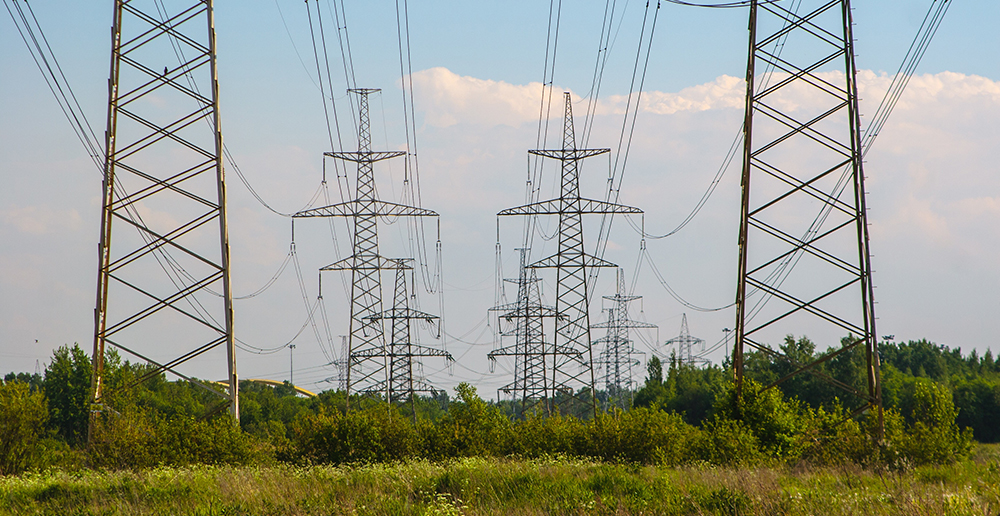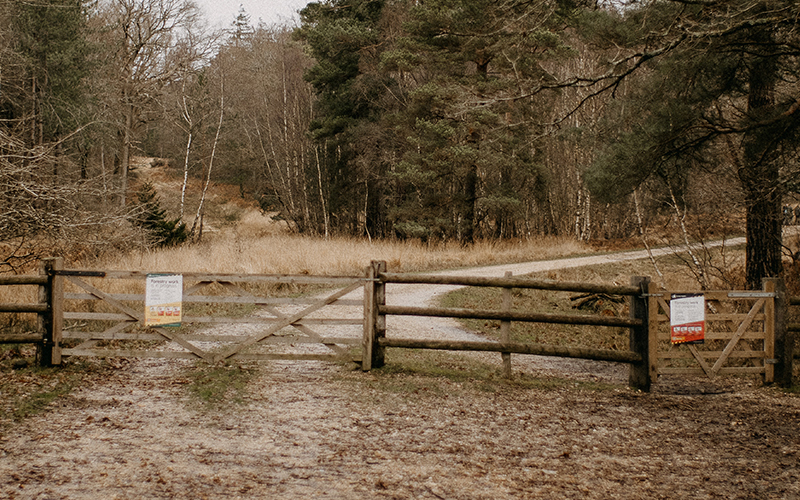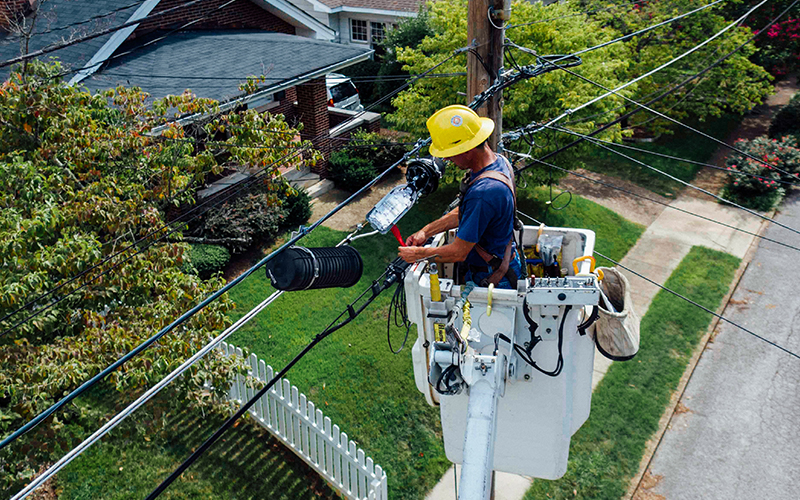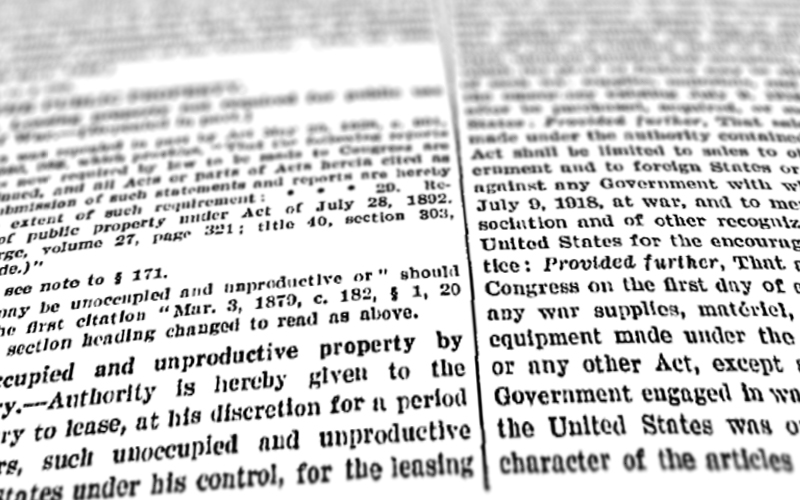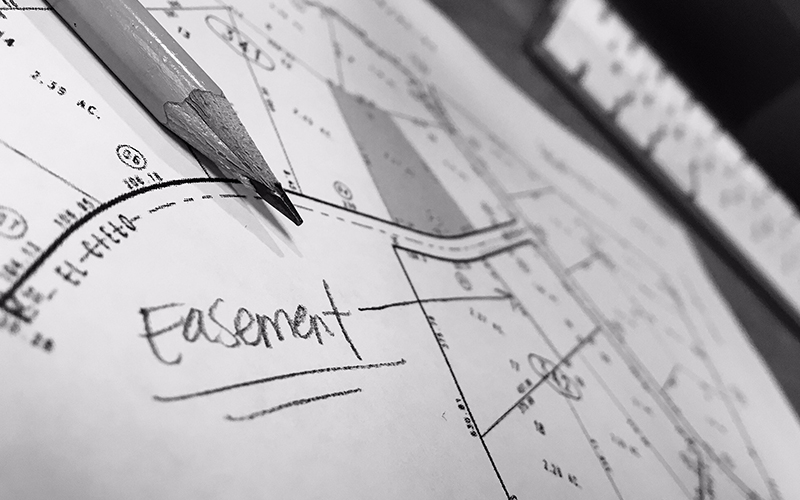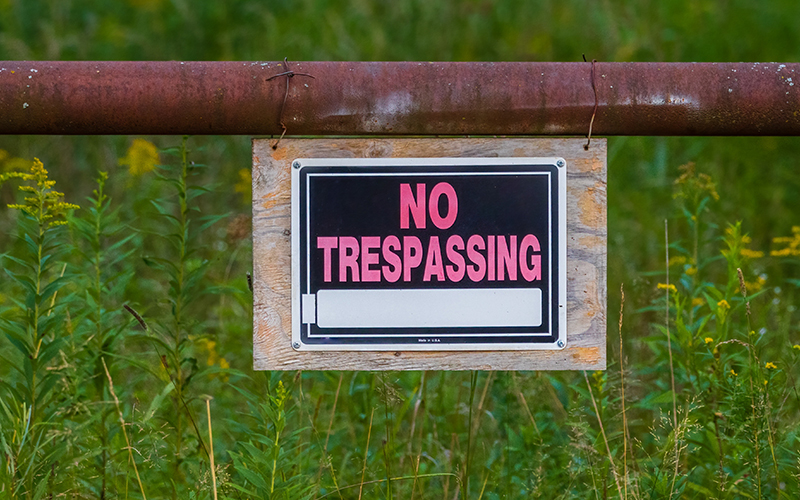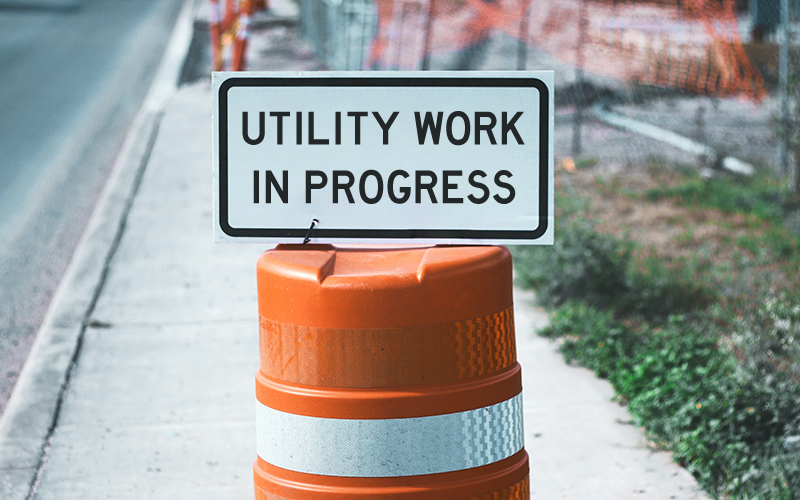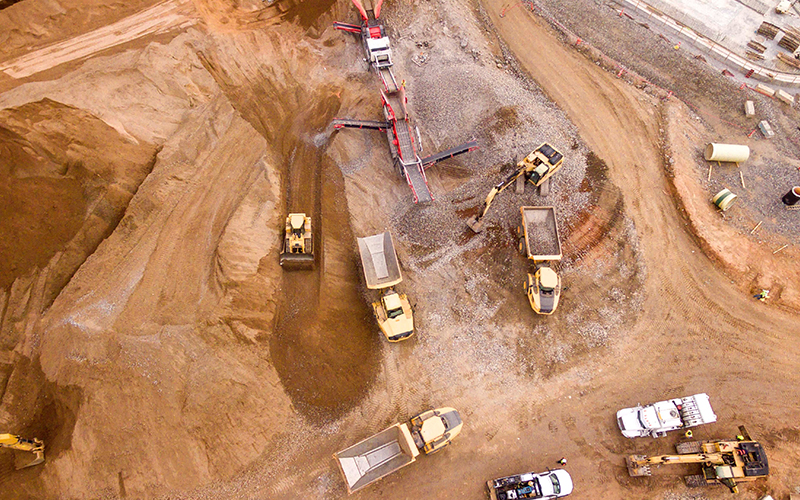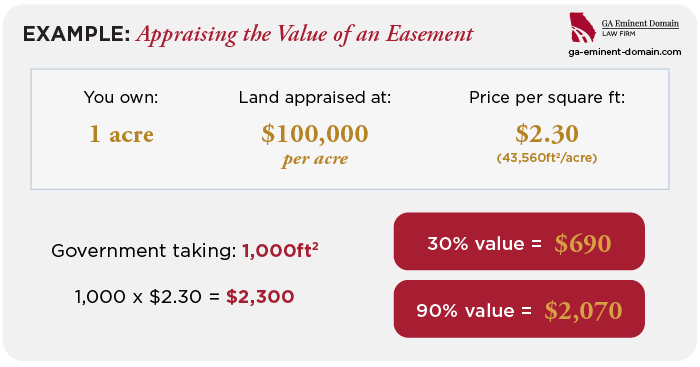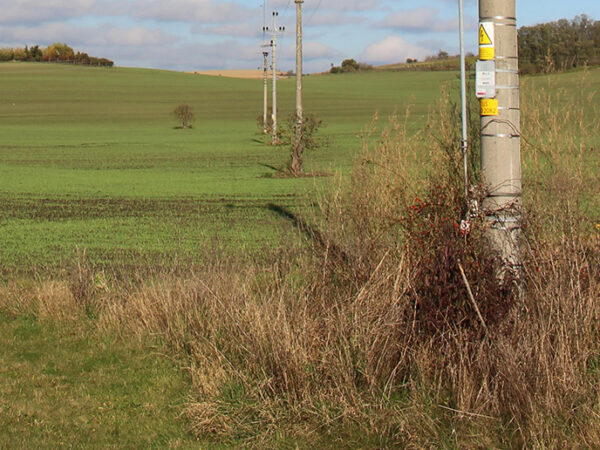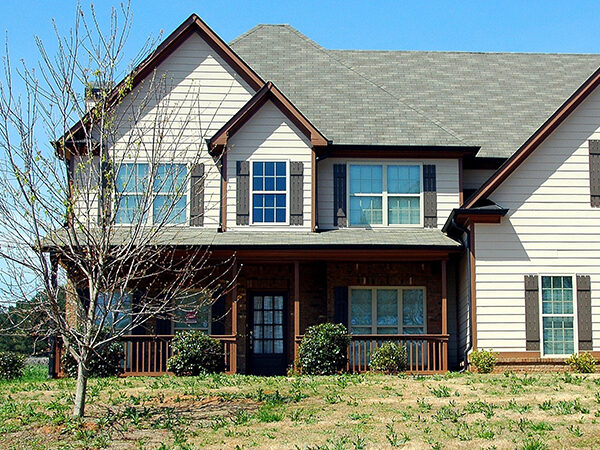If your property is subject to a utility easement, it means that a utility – private or government – has a non-ownership right to use your property for the purposes of providing and maintaining the specified utility. That probably sounds a bit convoluted, so let’s break it down.
Utility easements are the path through which things like power, natural gas, water, and wastewater travel. A utility taking an easement doesn’t technically convey any ownership of the land. It’s an “interest in real property,” which is a fancy way of saying that an easement takes rights to use the land without actually owning it. These can be temporary or permanent, though in some cases, the difference is minimal.
Can the utility company come onto my property?
Yes, that’s an essential part of utility easements. If equipment or services are damaged, require maintenance, or need altering, utility easements give utilities the right to enter your land to do their work. If there’s trouble with gas, electric, or other utility lines that run through, over, or under your land, the easement gives the utility company the right to access and repair them. An easement may also enable them to erect utility poles or towers on your property.
An overview of easements
The easiest way to understand the different kinds of easements is to think of it as “the right of another to use your land for a specified purpose.”
You still own the land, but you can’t just do anything you want with it anymore. You’re not allowed to interfere with the easement holder’s use and enjoyment of the easement. On the other hand, the easement holder – the utility in this case – can only use the land for the stated purpose of the easement.
There are plenty of examples of non-utility easements, such as shared driveways or driveway easements across your land so a neighbor can access private property. You might grant someone an easement to come fish in your pond. Utility easements are another animal entirely.
Permanent utility easements
A permanent utility easement (PUE) is a permanent right to access and use your land for utility service purposes, including maintenance, upgrades, and so on. The easement will remain even if you sell the property; it “runs with the land.” When a government entity like GDOT takes a right of way, they take the property. A permanent utility easement means they’re taking rights to use the property for a specific purpose, permanently. You still own it. They just get to use it.
Examples of PUEs include power line easements across your property, drainage easements, or even things like buried utilities such as gas, power, or data lines.
Note: Utility easements are almost always permanent.
When do permanent utility easements happen?
Utility easements are often taken when there is a road widening project. Existing power lines must be moved off the new road and onto your property, for example. Road work can push other utilities like gas lines, cable, and telephone poles onto your property as well. Unlucky property owners may lose land to GDOT for a road and then lose even more to utility easement relocation!
If the county or city needs to install water or sewer service, they may also grab an easement. These installations can be very destructive to properties in their path, as they are often engineered without regard to things like fences, trees, sheds, and clear spaces. Another common example of a PUE is when a city or county is installing sewer or water lines. Sewer lines aren’t always even servicing the property they cross but may result in large, unsightly manhole covers for maintenance and repair access.
What are Georgia’s utility easement laws?
The law allows GDOT, municipalities, and utilities to take easements on your land. The rules governing a utility easement are typically spelled out in a PUE deed, and can give the utility the ability to:
- Enlarge the utility – install larger pipes, for example
- Repair and maintain the utility
- Allow new improvements to be made to the utility
- Allow heavy trucks to park in the easement area
- Disallow the property owner from parking in the easement area
- Forbid the property owner from excluding trespassers
- Prevent the property owner from improving or constructing anything that impedes access to the easement at any time
GDOT, counties, cities, and utility companies may have different wording in their Permanent Utility Easement deed language, but they will be broadly similar.
These agreements are usually a mess of legalese and often take a great deal more than is necessary. We highly recommend hiring an experienced eminent domain attorney to review any easement agreement before you sign it. You may be signing away more than you think, and you may be entitled to compensation.
Does my property already have a utility easement?
To discover existing easements on your property, you’d want to do a title search, which can be very complex and time consuming. This should have been discovered when you purchased the property, as an attorney or title company would have done the necessary research. Easements typically transfer with the land, so if a prior owner agreed to an easement, you’re stuck with it.
There are, of course, smaller and more common easements that service almost every property. If you have cable and internet, you probably already have an easement for those services. But that does not mean utility companies can abuse their rights.
How might utility companies abuse an easement?
Easements are, ideally, very clearly defined. Georgia law limits their scope in some cases, but the PUE itself should also specify use and area. Also note that easement agreements are typically very broadly worded, giving the utility more leeway in their activities.
If the utility exceeds its authorized area or activities (though unlikely), it’s basically trespassing on your private property. If the utility negligently damages or destroys unrelated property in the exercise of their easement, they may owe you compensation.
Note: Developments that want to use an easement for additional traffic may exceed the easement.
Can I remove a utility easement from my property?
Probably not. In the case of a PUE, the language in the easement agreement is almost always permanent. Even a temporary easement may last an uncomfortably long time and will be difficult, if not impossible, to end before its allotted expiration.
That said, in rare cases, the utility may abandon an easement it no longer needs.
What are my utility easement rights?
You are entitled to use and enjoyment of the easement area, but within the limitations defined by the easement. Many homeowners and property owners get frustrated because they’re not sure what they can and can’t do. Perhaps they have a large easement area and either don’t want to maintain the area or conversely worry that it might become desolate and useless.
The truth is, it’s still your property regardless of the easement, and you must maintain it just as any property owner. And it need not become a wasteland.
Depending on the type of PUE and the language in the deed, you may be able to fence the area, plant a garden, install flower beds or decorative bushes, or do other things that don’t interfere with the easement. The risk, in these cases, is that if the easement holder needs to damage or tear up these improvements for some reason, they’re probably not required to compensate you.
How do I calculate the value of a utility easement?
You may be entitled to compensation for the easement taking. What you may be owed depends on how much the easement diminishes the value of, and your enjoyment of, the land. Remember that you retain ownership, so you’re not technically losing the land where they’re taking the easement. You’re simply losing some control over it.
Every property, and therefore every easement, is unique. It follows that the amount of compensation you should seek for an easement is likewise variable and depends on many unique circumstances.
Effects of easements: Setbacks, acreage, and tax value
A utility easement affects your property in some ways you might not think of. Here are a few examples.
Setbacks – Most counties and municipalities have regulations that govern the construction of “improvements” – anything to be built on the land. One of these regulations may be a “setback” requirement; a specific distance an improvement must be from the property line. For example, the county may require that a fence be built at least 10 feet away from property lines.
The good news is that easements typically do not count against setback ordinances. The bad news is that the easement may not allow you to build what you want, regardless. Consult the PUE deed.
Acreage – Sometimes, size matters. Some property owners, commercial and residential, are deeply vested in the acreage because it greatly affects the value of the property. Commercial owners may need a certain amount of acreage to account for runoffs and permeable surface requirements, while a residential property owner may want to add another building and need the acreage to meet zoning requirements.
The good news is that easements typically do not reduce acreage. If you have 0.65 acres with a 0.13 acre easement, you generally still have 0.65 acres. The bad news, again, is that your desired use may not be permitted by the PUE, making the acreage size moot.
Tax Value – While taxes are going to vary depending on location, an easement may allow you to reduce that tax burden. If your land is worth less due to the existence of a utility easement, you may not have to pay as much tax on it, though this won’t be true in every case. This can get really complicated, and is something you should discuss with your eminent domain attorney.
Appraisals, value, and easements
I have seen government appraisers calculate anywhere between 30% and 90% of the full land value for utility easement compensation.1
How can an eminent domain lawyer help me?
When you’re faced with a legal process and the accompanying legal document that will fundamentally change your rights, it’s a good idea to have a lawyer on your side. For many people, property is the largest single investment they’ll make in their lives. For businesses, property rights can make or break multimillion-dollar projects.
Our eminent domain team has over 100 years of combined experience and can help you:
- Translate legalese into plain language. Easement agreements are packed with dense language. They may hide additional infringements in hard-to-understand jargon. They can bundle multiple easements into one, and you might not realize it. We’ve read hundreds and hundreds of easement documents. We know what they mean, and we can look for these hidden add-ons so you know exactly what you’re agreeing to.
- Fight for maximum compensation. From the government to the local utility company, others have the right to take easements on your land. However, as the property owner, you should get fair compensation for what they take. We can help calculate the current and future damage to the value of your land and help you seek the highest possible compensation. And if the agreement is unfair or the compensation offer unreasonable, we can fight on your behalf – even in court if needed.
- Leverage a network of professionals to build your case. We’ve cultivated a list of non-legal professionals with very specific expertise. We know who to call, for what, and when – and who can get things done for you. From eminent domain appraisals to engineers to surveyors and environmental professionals, we have the human resources to help us determine the true value of your land.
Learn 2 More: About Our Formidable Team
Get help grappling with utility easements
This article is not an all-encompassing list of the issues you may face if someone takes a utility easement on your property. If a utility company or government project burdens your private property with an easement, whether it’s for water pipes or power lines, we strongly encourage you to contact an attorney.
Our team handles eminent domain cases, large and small. From a small residential plat to intricate, vast commercial property, we can evaluate your case and give you an experienced perspective on the taking. We have former state DOT attorneys on our team who are well-versed in the tactics utilities use, and how to try to ensure you’re treated fairly. Reach out to the Georgia Eminent Domain Law Firm by calling 1-888-391-1339 or filling out our contact form today.
